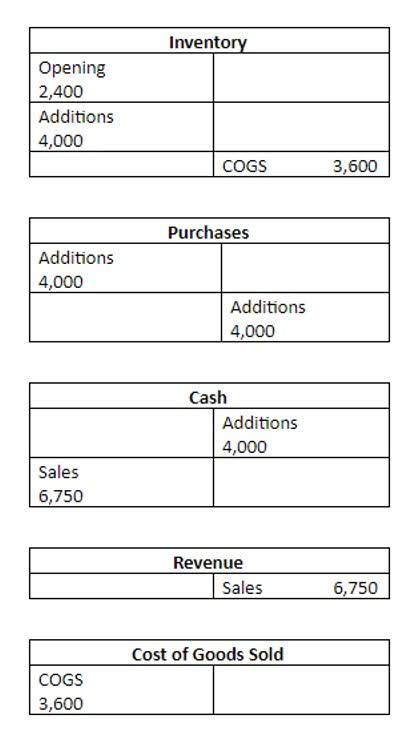Bookkeeping vs Accounting: Roles, Duties & What to Choose
 17 ม.ค. 65
17 ม.ค. 65

However, it is essential to note that salaries can vary based on experience, location, industry, and the organization’s size. Their advanced knowledge and expertise in accounting principles, financial difference between accounting and bookkeeping analysis, and tax regulations make them highly valued professionals, which can result in higher earning potential. Small businesses may struggle with adopting and utilizing accounting software and other technological tools. Implementing new technology requires time, resources, and training, which may be limited for small businesses. Bookkeepers are vital in adhering to internal control procedures, documenting processes, and flagging any irregularities or potential risks.
- Despite all this, auditing is a completely different process when compared to bookkeeping.
- Did this article help you to understand the basic difference between accounting and bookkeeping?
- These statements provide a comprehensive view of an organization’s financial health and performance.
- This reduces the risk of data breaches, unauthorized access, and loss of financial information.
- Bookkeepers provide accurate historical financial data and assist accountants in analyzing past performance.
Organizing and Classifying Financial Data
A bookkeeper’s main job is to enter all this information accurately into ledgers or bookkeeping software. This makes it easier trial balance to find out what has happened with the money and catch mistakes early. Bookkeepers often balance accounts, make sure bills are paid, and see that employees get paid on time. Accounting and bookkeeping are both important for handling financial information.

Choose Your Business Structure
- When comparing the two, neither is inherently better than the other—they’re complementary.
- Bookkeepers do not usually analyze the data or create big financial reports.
- The term is most ordinarily used with respect to audits in accounting, and sometimes in project management, legal departments, and financial management also.
- Their meticulous record-keeping and adherence to accounting standards contribute to the overall compliance of the business.
- Accountants, including those with auditing qualifications, may be involved in performing audits, particularly in the context of internal auditing within an organization.
Advanced technologies, such as AI and data analytics, have revolutionized data analysis in bookkeeping and accounting. AI-powered algorithms can analyze large volumes of financial data, identify patterns, detect anomalies, and generate meaningful insights. Technology has saved considerable time in bookkeeping and accounting processes. With automated data entry and transaction categorization, the time required for manual record-keeping has been significantly reduced. Small business owners often lack the expertise and knowledge in bookkeeping and accounting. They may have a limited understanding of financial principles, regulations, and best practices.
Maintaining the Books
Financial records must be maintained accurately and follow accounting standards and applicable regulations. By keeping meticulous records, bookkeepers help the company meet its tax obligations, adhere to financial reporting regulations, and demonstrate transparency and accountability to stakeholders. Bookkeepers reconcile bank statements with the company’s financial records to accurately reflect all transactions.
Financial Planning and Budgeting
- Both roles are critical in maintaining accurate financial records, ensuring compliance, and providing valuable insights for decision-making.
- It accounts for a purchase price that is higher than the fair net value plus the company’s assets put together.
- This helps in implementing proper measures to increase the revenue generation and better profit of the company or business.
- This includes but is not limited to noting down payments made to vendors, documenting sales, and tracking various business-related expenses.
Usually, bookkeepers ascertain that bills are paid, employees receive payment timely, and also balance accounts. Small businesses often face unique financial challenges, requiring tailored accounting and bookkeeping solutions. This section would focus on how small business owners can optimize their financial management practices, balancing the need for detailed accounting with the realities of limited resources.

The main difference between bookkeeping and accounting lies in their scope and analysis level within an organization’s financial management process. Bookkeeping is a subset of accounting and primarily focuses on the systematic recording and organization of financial transactions. On the other hand, accounting encompasses a broader range of activities, including interpreting, analyzing, and summarizing financial data to generate meaningful insights for decision-making.
Recorded financial transactions in the bookkeeping process follow the principles of the double-entry system, a cornerstone of this precise art. From accrual accounting to forensic accounting, these methods allow businesses to gain deeper insights into their financial health, identify trends, and make predictions about future performance. Advanced accounting also plays a pivotal role in compliance, ensuring businesses adhere to financial regulations and standards. Accounting and bookkeeping are both financial tools used for the recording of business transactions. There are slight differences between accounting and bookkeeping and they are mainly some technical differences. To understand what separates accounting from bookkeeping we must completely understand both categories and we must learn how they function in the everyday use.
- This knowledge allows them to adhere to the required accounting standards, accurately prepare financial statements, and ensure compliance with regulatory requirements.
- Accountants use bookkeeping records to create reports and analyze trends, helping leaders make informed decisions.
- With the help of an accountant, you may be able to identify and navigate tasks including strategic tax planning, acquiring assets, calculating growth, and analyzing investment opportunities.
- Also, you can join our free live classes to learn about these concepts and other related topics more effectively in the most convenient manner.
- While both roles are crucial for maintaining accurate financial records, their specific duties vary based on the complexity of tasks and the depth of financial analysis involved.
- Think of your bookkeeper as the one building the foundation of your businesses finances, and your accountant as the architect who designs a house around it, inspecting the foundation.
Key Features Of Bookkeeping

In conclusion, understanding the distinctions between accounting and bookkeeping is crucial for effective financial management. While bookkeeping focuses on meticulous transaction recording, accounting involves interpretation, analysis, and strategic financial planning. Learn more what you can do to offer quality accounting services as a Strategic Accountant (free e-book). A key responsibility is reconciling accounts to ensure recorded transactions match bank statements and other financial records. This helps identify discrepancies such as unauthorized charges, missing deposits, or https://www.bookstime.com/blog/tips-for-accounting-security-safeguarding-financial-data data entry errors. Monthly reconciliations maintain accuracy and prevent financial mismanagement.

Products and Services
They input data from invoices, receipts, and bank statements into accounting software or manual ledgers. Proficiency in accounting software is crucial for modern bookkeepers and accountants. They should be comfortable working with industry-standard software like QuickBooks, Xero, or Sage. Small business owners sometimes intermingle personal and business finances, making it difficult to track business expenses and income accurately.




